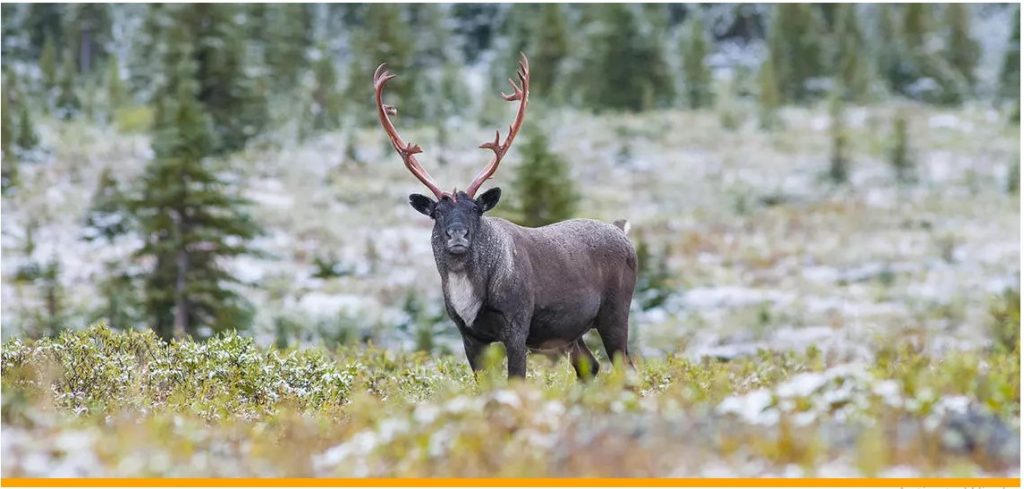UCalgary research reveals caribou migration habits linked to genetic heritage

New findings by a University of Calgary researcher reveals evidence that migratory behaviours in caribou are linked to genetic heritage, and loss of habitat could be detrimental to certain caribou populations. Dr. Maria Cavedon, PhD, postdoctoral Fellow at UCalgary, and her colleagues’ research shows that this could result in permanent loss of these migratory genes, which could be traced back to the last ice age.
During the ice age, caribou were divided into northern and southern populations by an ice sheet that covered part of North America. By analyzing the genetic structure of caribou, Cavedon found that northern caribou have 57 ancestral gene mutations that have a strong association with migration. These mutations are found in genes known to affect brain activity, sleep disorders, and metabolism.
To better understand the difference between northern and southern caribou the team analyzed blood and tissue samples from 190 caribou, of which 139 were then GPS tracked. Caribou that have greater genetic similarity to the northern population are found to be more migratory than those more closely related to the southern population.
There is a caribou population here in the Rocky Mountains that is forced to live in a single location due to habitat loss, and as a result are dying out. The decline in this population is happening very fast, which can lead to the genetic package of migration being completely lost.
– Maria Cavedon
While other studies of caribou have claimed that the initiation of migration is influenced by environmental conditions, Cavedon’s research finds evidence of a potential link to genetics, too. By reading studies on other migratory animals such as birds, Cavedon was able to identify evidence of a possible ancestral gene package similar to that of caribou. The research indicates that genes involved in brain activity could contribute to migration, which supports the idea that migratory animals synchronize their movements using an internal timer that helps them keep track of the seasons.
“With the research showing migration is more of a genetic trait than previously thought, caribou with these ancestral genetic mutations are significantly threatened by the effects of habitat fragmentation and habitat loss and are fast declining,” says Cavedon. “These mutations could not be easily re-established when lost.”
With endangered caribou populations at risk of losing their migratory traits, it is important to understand how this will affect our ecosystems. “The loss of migration can have significant ecological impacts on ecosystems, such as influencing prey densities and grazing in seasonal ranges. The loss of these gene mutations means these animals will no longer be playing their ecological role in the future,” says Cavedon.
Research like Cavedon’s that helps to understand the mechanisms underlying migratory behaviour has become a broader conservation priority. Preserving these genetic mutations in caribou and other migratory species could help maintain a species’ survival in the long term. “The loss of these mutations could potentially be prevented with the maintenance of critical seasonal habitats,” says Cavedon.
